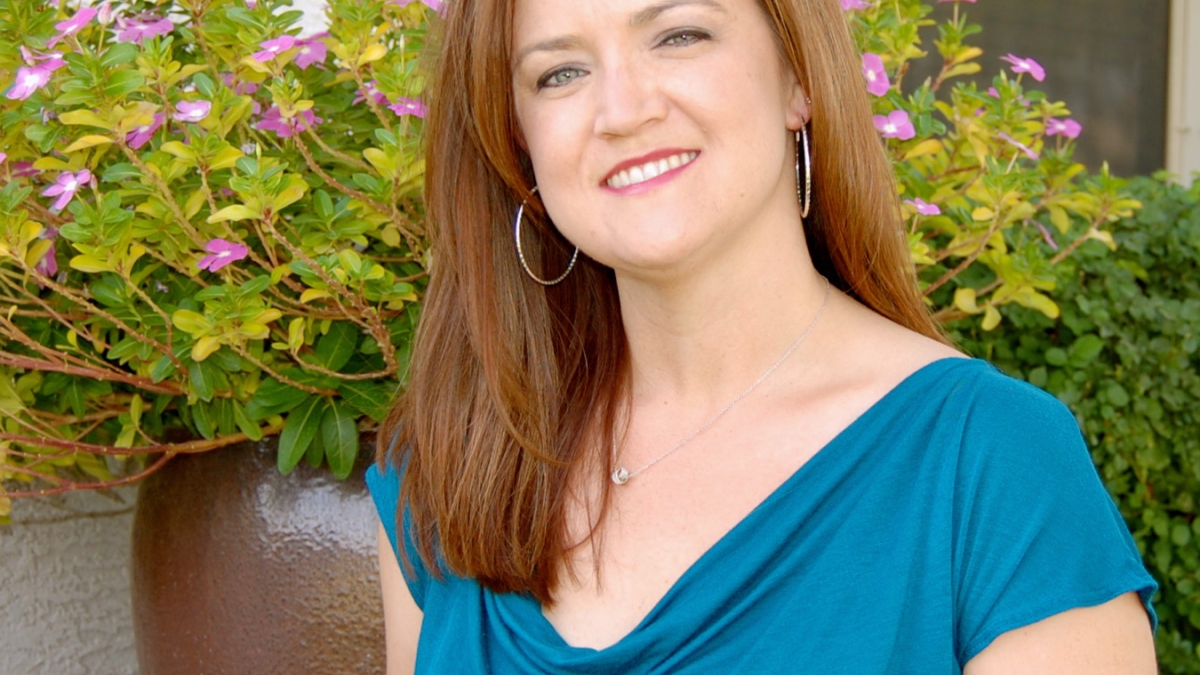Graduate's son inspires path to master's degree

When Brandy Naleski’s son did not begin talking at 15 months old, a pediatrician and a speech pathologist said he was just a late talker and to be patient.
“As a toddler, he would sit in the corner of the living room with his back to us and play with a ball popper toy,” says Naleski. “Sometimes we'd call his name again and again, and he wouldn't look at us. I didn't know these things were the early signs of autism.”
Naleski, who is graduating this May from Mary Lou Fulton Teachers College at Arizona State University, was inspired to get her master’s degree in applied behavior analysis as a result of her experiences with her son.
“Now I see that the signs were there, but we didn't know what to look for. That is why education is so important.”
Her son was diagnosed with autism spectrum disorder in 2010, when he was about two-and-a-half years old. “We didn't know anyone personally affected by autism. It was a scary world to be thrown into. As any parent would, I immediately delved into researching and trying to learn everything I could about this disorder. I was lucky to have an incredibly supportive husband who worked hard to provide for our family so I could focus solely on our children, specifically our son's therapy program.”
Soon after, her son began weekly speech, occupational and physical therapy. “We also began an intensive two-year home Applied Behavior Analysis (ABA) therapy program through the State of Arizona's Habilitation-Masters (HabM) program.”
She soon discovered that early and intensive behavioral therapy could have dramatic effects.
“The progress I saw in my son was incredible,” says Naleski. “His tantrums decreased, his language blossomed and his social anxiety has become manageable.”
Realizing that applied behavior analysis is a safe and effective treatment for autism, Naleski wanted to help other families experience the same success and joy. “My decision to obtain a master’s degree was very personal to me,” she says.
Naleski received a bachelor’s degree in business management from ASU in 2001. She returned in 2012 to begin her graduate studies in curriculum and instruction (teaching and learning) with a concentration in applied behavior analysis. At the same time, her son entered kindergarten a few days shy of his fifth birthday “in a typical classroom without the assistance of an aid.”
Her son continues to receive speech and occupational therapy. “My son is excelling academically and teaches me more every day about how to be a good parent. Although he sometimes struggles in social situations, mostly people think he is just a typical kid who loves watching football, swimming and playing video games. My daughter is a bright fourth-grader and her brother's biggest supporter.
“I hope that my studies have prepared me to help other families dealing with a diagnosis of autism,” says Naleski. “Knowledge is key. All parents should learn the early symptoms of autism and seek an evaluation from their pediatrician if they are concerned.”
To that end, she plans to earn a Board Certified Behavior Analyst credential and is accruing 1,500 hours of supervised fieldwork.
“At the time of my son's diagnosis, about one in 110 children were diagnosed,” says Naleski. “The most recent numbers are now one in 68.”
Although the cause of autism is unknown, Naleski believes the increase in the number of diagnoses can be varied, including genetics, environmental causes or an increase in public knowledge. “Historically, a diagnosis of autism was only given for those that were what we now consider the lower end of the autism spectrum. The diagnosis definition has widened to include individuals with higher functioning autism. I also think that more parents are seeing the early signs and seeking a diagnosis. The increased rates may be a combination of these things.
“Early intervention is key to helping these children succeed. These children have so much potential and so much to offer society as they grow up, but they need our help.”
Naleski has led a team called Inspiring AZ Angels for three years at the annual Autism Speaks Walk held at Tempe Beach Park. She suggests Autismspeaks.org as a great resource for anyone wanting to learn more about autism and treatment options available.
“An autism diagnosis is not a death sentence,” she states emphatically. “These children have so much potential; it is our jobs as parents, teachers and therapists to find the key to unlock it for them. I will forever be grateful for every member of our son's therapy team. I feel it's my turn to pay it forward and help other children reach their fullest potential.”